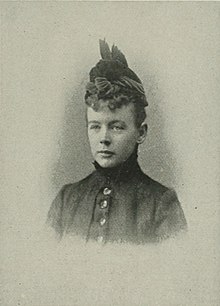
Rush Clark was a nineteenth-century politician and lawyer from Iowa, who died on the floor of Congress in 1879.
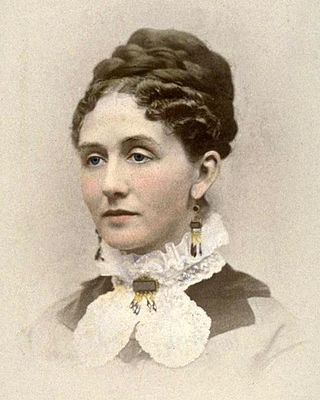
Sarah Brown Ingersoll Cooper was an American educator, author, evangelist, philanthropist, and civic activist. She is remember as a religious teacher and her efforts to increase the wide interest in kindergarten work. Cooper served as first president of the International Kindergarten Union, president of the National Kindergarten Union, president and vice-president of the Woman's Press Association, president of the Woman's Suffrage Association, and president of the Woman's Christian Temperance Union. She served as vice-president of the Century Club, treasurer of the World's Federation of Woman's Clubs, a director of the Associated Charities, and one of the five women elected to the Pan-Republican Congress. At the 1893 World's Fair, she delivered thirty-six addresses, and on her return, helped to organize the Woman's Congress of which she was president for two years and at the time of her death. Several years before her death, Mrs. Cooper became a convert to equal suffrage and was president of the Amendment Campaign Committee. A few months before she died, Cooper stated that she was an officer of nineteen societies for charitable purposes.

Frances Ross Linfield was an American educator, social activist and philanthropist. In 1922, she made a gift to McMinnville College worth $250,000, prompting the school to change its name to Linfield College, in honor of her late husband, the Rev. George Fisher Linfield. In 2020, the school became Linfield University.

Emelie Tracy Young Swett was an American author, editor, poet and translator. She wrote both prose and verse, and in her literary work was often employed by publishers to translate French and German articles and books. She was at one time employed as the private secretary of a publishing house, and in this capacity she developed executive abilities. In 1889, she married John W. Parkhurst, an employee in the Bank of California. Swett contributed largely to the magazines and papers of the Pacific Coast. Her literary work included translations from Greek, French and German and some finished poems of high merit. She dramatized Helen Hunt Jackson's novel Ramona. She founded the Pacific Coast Women's Press Association. She supported suffrage. For a year before her death, at the age of 29, she was assistant editor of the Californian Illustrated Magazine. Swett died in 1892.

Carrie Stevens Walter was an American educator and poet who was a co-founder of the Sempervirens Club, a California environmental organization. She was heavily involved in the purchase of the Santa Cruz Big Basin by the State. She first visited the Big Basin as one of a sizable party. Her second trip was made to Santa Cruz, Pescadero, and La Honda, California. Both trips were written up in an instructive way. Her expenses and that of her party on that trip were paid by a few residents of Santa Cruz. Beyond expenses, she received no compensation.

Elizabeth Morrison Harbert was a 19th-century American author, lecturer, reformer and philanthropist from Indiana. She was the first women to design a woman's plank and secure its adoption by a major political party in a U.S. state.
Pacific Coast Women's Press Association was a press organization for women located on the West Coast of the United States. Discussions were not permitted regarding politics, religion, or reform. The members of the association took on causes related to certain public improvements in the way of roads, streets, parks, libraries, village improvement societies, free exhibits of county resources, the suppression of criminal details of sensational cases in newspapers, the suppression of criminal advertising, and school development. To facilitate the work, the association issued printed monographs.

Nellie Blessing Eyster was an American journalist, writer, lecturer, and social reformer. She was a grand-niece of Barbara Fritchie.

Adaline "Addie" Dickman Miller was an American college professor, a founder of the town of Ruskin, Florida, and the co-founder and vice-president of the town's Ruskin College. She patented a design for a dish washer and she was president of two different temperance organizations in Oregon.
Dorothy Deemer Houghton was an American Republican public official and civil servant.

Sarah Doan La Fetra was an American temperance worker.
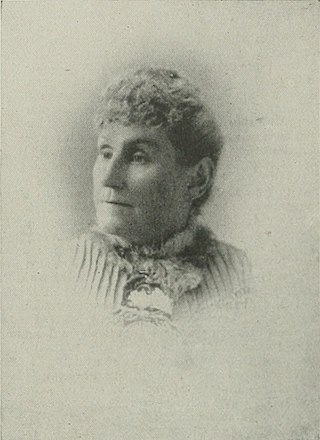
Emily Pitts Stevens was an American educator, temperance activist, and early San Francisco suffragist. She was the editor and publisher of The Pioneer, the first women’s suffrage journal in the West Coast of the United States, and was a co-founder of the California Woman Suffrage Association. In addition, she was a businesswoman, teacher, administrator, lecturer, and a founder of women's organizations. In San Francisco, Stevens started an evening school for working girls, and instituted the Seaman's League. After the organization of the Woman's Christian Temperance Union (WCTU) in California, she labored on its behalf. She also contributed to the columns of various newspapers, and lectured. Stevens died in 1906.

Mary McHenry Keith (1855–1947) was an American lawyer and social justice advocate who was especially known for her work in the woman suffrage and animal rights movements. As the widow of the artist William Keith, she also was celebrated for her work cataloguing, preserving, and sharing his collected works.

Mary Roberts Coolidge, also known as Mary Roberts Smith, was an American sociologist and author. She was an instructor at Wellesley College before joining the faculty of Stanford University, where she became the first full-time American professor of sociology. She later founded the sociology department of Mills College.
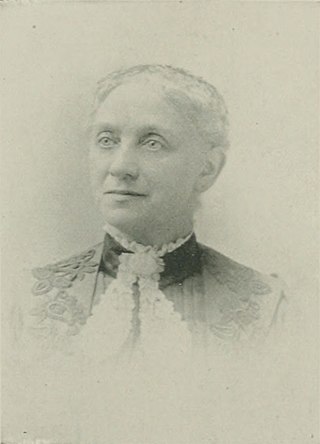
Mary Jane Aldrich was an American temperance reformer, lecturer, and essayist of the long nineteenth century. She served as vice-president of the National Woman's Christian Temperance Union (WCTU) and president of the Iowa union. At the time of the division in the ranks of the WCTU, Aldrich, with the Iowa union, adhered to the non-partisan temperance work, and became evangelistic secretary of the Non-Partisan National Woman's Christian Temperance Union. As a temperance worker, she was characterized as sanguine and practical. As a speaker, she was bright, forceful, entertaining and logical. She was the author of "Church and Sunday School Temperance Work" (1898).
Nettie Sanford Chapin was a 19th-century American teacher, historian, author, newspaper publisher, suffragist, and activist. Chapin wrote mostly prose. She also wrote on Iowa history, and published several small books herself. While residing at Washington, D.C., for several winters, she wrote concerning society and fashionable Washington circles. In 1875, she began the publication of The Ladies Bureau, the first newspaper published west of Chicago by a woman. Chapin served as chair of the National Committee of the National Equal Rights Party.
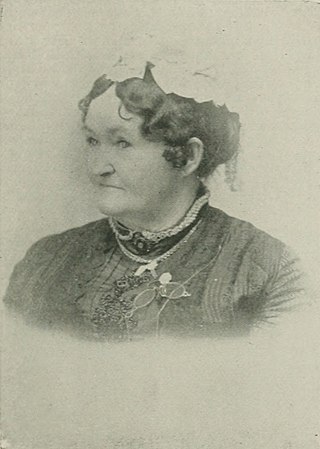
Alice A. W. Cadwallader was an American philanthropist and temperance activist. She served in Florida as state president of the Woman's Christian Temperance Union (WCTU).

Marion Howard Dunham was an American teacher, temperance activist, and suffragist. She entered upon the temperance field in 1877 with the inauguration of the red ribbon movement in her state of Iowa, but believing in more permanent effort, she was the prime agitator in the organization of the local Woman's Christian Temperance Union (W.C.T.U.). In 1883, she was elected state superintendent of the Department of Scientific Temperance and held the office for four years lecturing to institutes and general audiences on that subject most of the time. She procured the "Prohibitory law of the state of Iowa", in February 1886. When the Iowa State Temperance Union began to display its opposition to the national W.C.T.U., she came to be considered a leader on the side of the minority who adhered to the national and when the majority in the state union seceded from the national union October 16, 1890, she was elected president of those remaining auxiliary to that body. She spent a large part of her time in the field lecturing on temperance.

Effie Hoffman Rogers was an American educator, editor and journalist. For several terms, she was elected county superintendent of the public schools of Mahaska County, Iowa, the first woman ever elected to that office in that county. She was also at the head of the board of education of the Oskaloosa schools, resigning her presidency of the board upon her removal to Colorado in later life. Rogers was also prominent in the "women's club" movement.

Anna Matilda Larrabee was an American social leader. Married to Iowa Governor William Larrabee, she served as the First Lady of Iowa from 1885 until 1889. She was often referred to as "Iowa's Ideal Mother".
